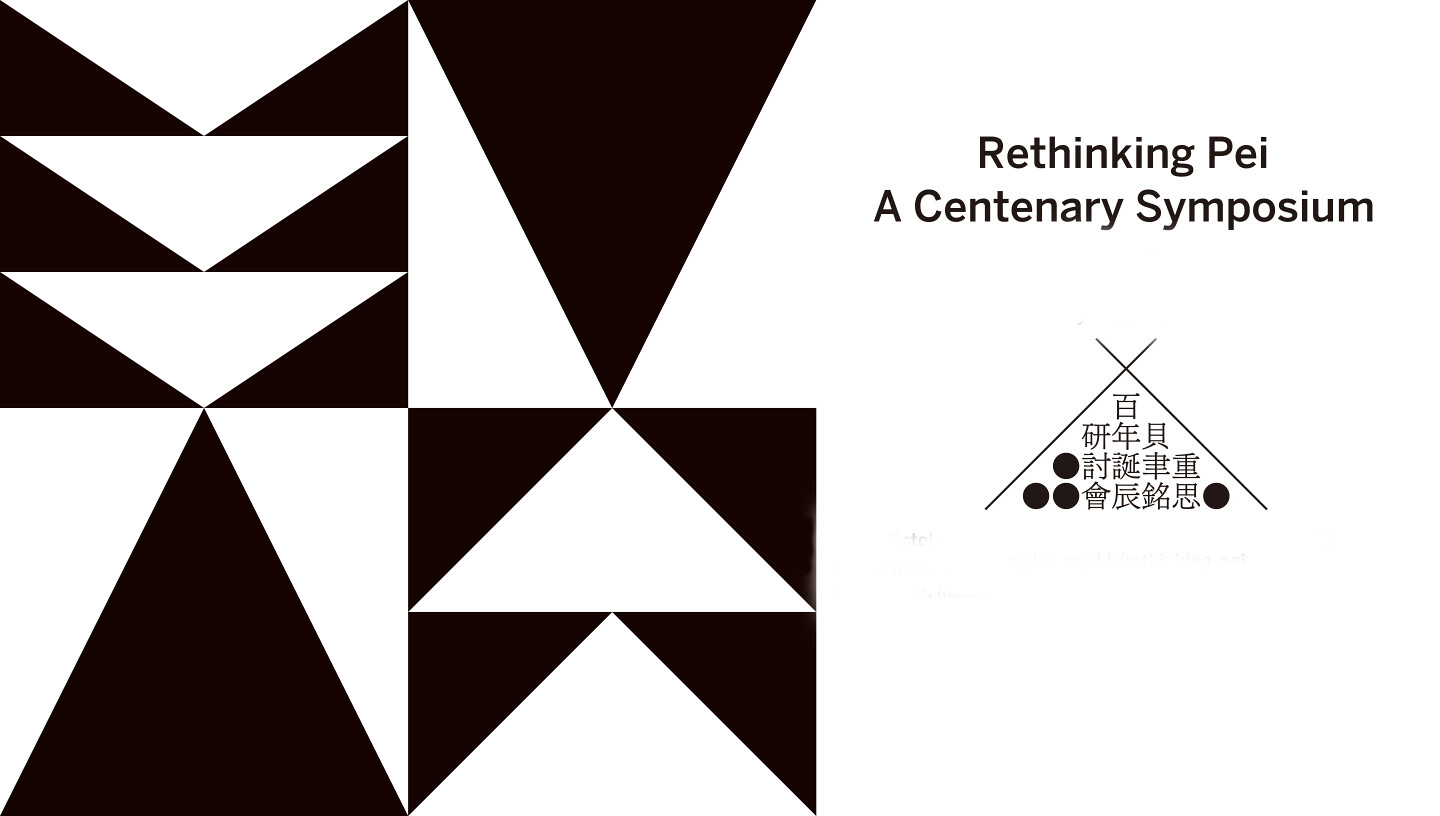October 12-13, 2017
Piper Auditorium, Gund Hall,
Harvard Graduate School of Design,
Cambridge, Massachusetts, USA
Speakers: Daniel M. Abramson, André Bideau, Edward Eigen, Annette Fierro, Delin Lai, Stuart Leslie, Thomas Leslie, Bill Pedersen, Leslie Robertson, Cole Roskam, Brett Schneider, Shohei Shigematsu, Janet Adams Strong, Shirley Surya, Yvonne Szeto, Kellogg Wong
gsd.harvard.edu/events
December 14–15, 2017
KB 419, Knowles Building,
Department of Architecture, The University of Hong Kong,
Pokfulam, Hong Kong
Speakers: Barry Bergdoll, Chin-Wei Chang, Jiat-Hwee Chang, Yung Ho Chang, Nelson Chen, Thomas Daniell, Juan Du, Ming-Wei Huang, Seng Kuan, Bing Lin, Linfan Liu, Eric Mumford, Kamran Afshar Naderi, Sandi Pei, Sara Stevens, Calvin Tsao, Kwang-Tyng Wu, Margie Yang
www.arch.hku.hk/event_/rethinking-pei
“Rethinking Pei: A Centenary Symposium” is a two-part symposium co-organised by M+, the new museum of twentieth and twenty-first century visual culture in Hong Kong’s West Kowloon Cultural District, with, respectively, the Graduate School of Design at Harvard University (GSD), and the Department of Architecture at the University of Hong Kong (HKU). The symposium helps celebrate the one hundredth birthday year of I. M. Pei (b. 1917) by bringing together leading scholars who will lend new insights into the acclaimed architect’s life and work. The first session will take place on October 12–13 in Cambridge, MA, USA (at GSD), and the second session on December 14–15 in Hong Kong (at HKU).
Despite his numerous iconic projects—including the East Building of the National Gallery of Art in Washington, D.C. (1968–78); the Bank of China tower in Hong Kong (1982–89); and the Louvre Pyramid in Paris (1989–93)—Pei remains one of the most celebrated yet under-theorized architects of the twentieth and early twenty-first centuries. Though Pei’s six-decade career is mostly identified with his unwavering interest in cultural synthesis and the power of pure geometrical form, his work and methods of practice offer additional opportunities for investigating their dynamic intertwinement with multiple, consequential moments in the history of mid- to late twentieth century architecture, and their relationships with broader phenomena.
Examining Pei’s work through formal, spatial, social, cultural, and geopolitical lenses—spanning architecture and urbanism, and across the United States, Asia, Europe, and the Middle East—”Rethinking Pei: A Centenary Symposium” will assemble more than 30 speakers, including scholars selected by invitation and open call, alongside associates, colleagues, and friends of Pei. Together, the symposium’s two linked conferences aim to resituate the architect from the intersecting vantage points of the international poles with which he is most closely linked: Hong Kong/China and Boston/the United States.
“Rethinking Pei” is made possible with the generous support of C Foundation.


